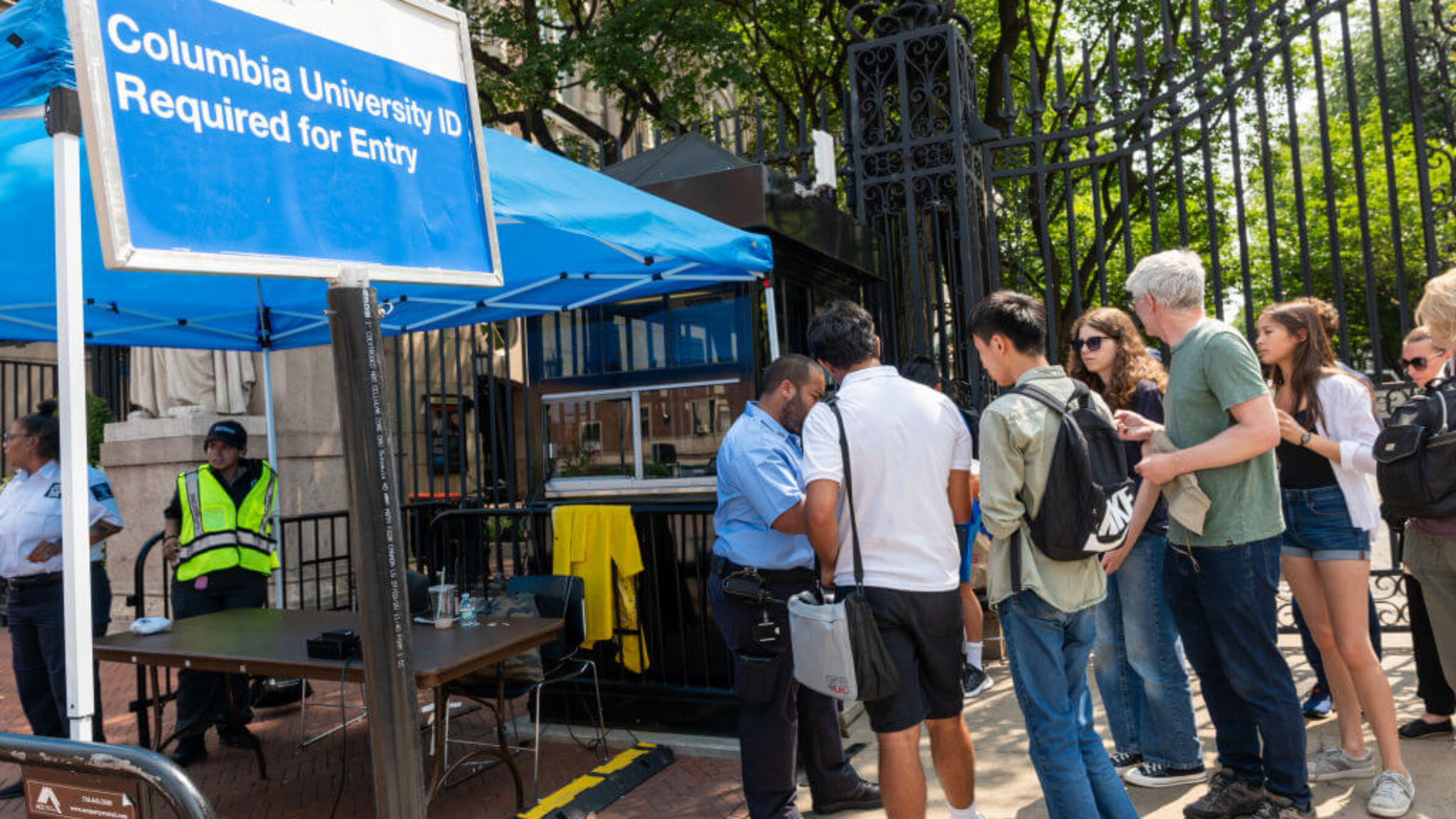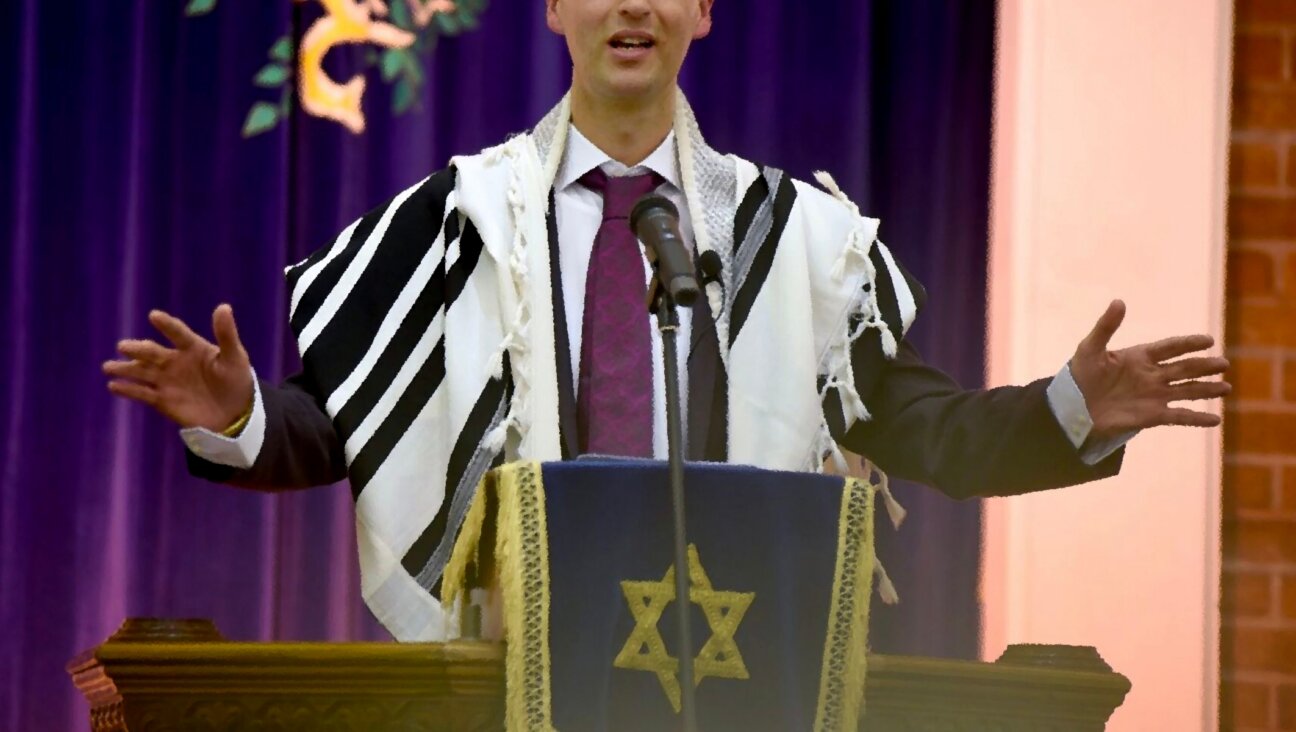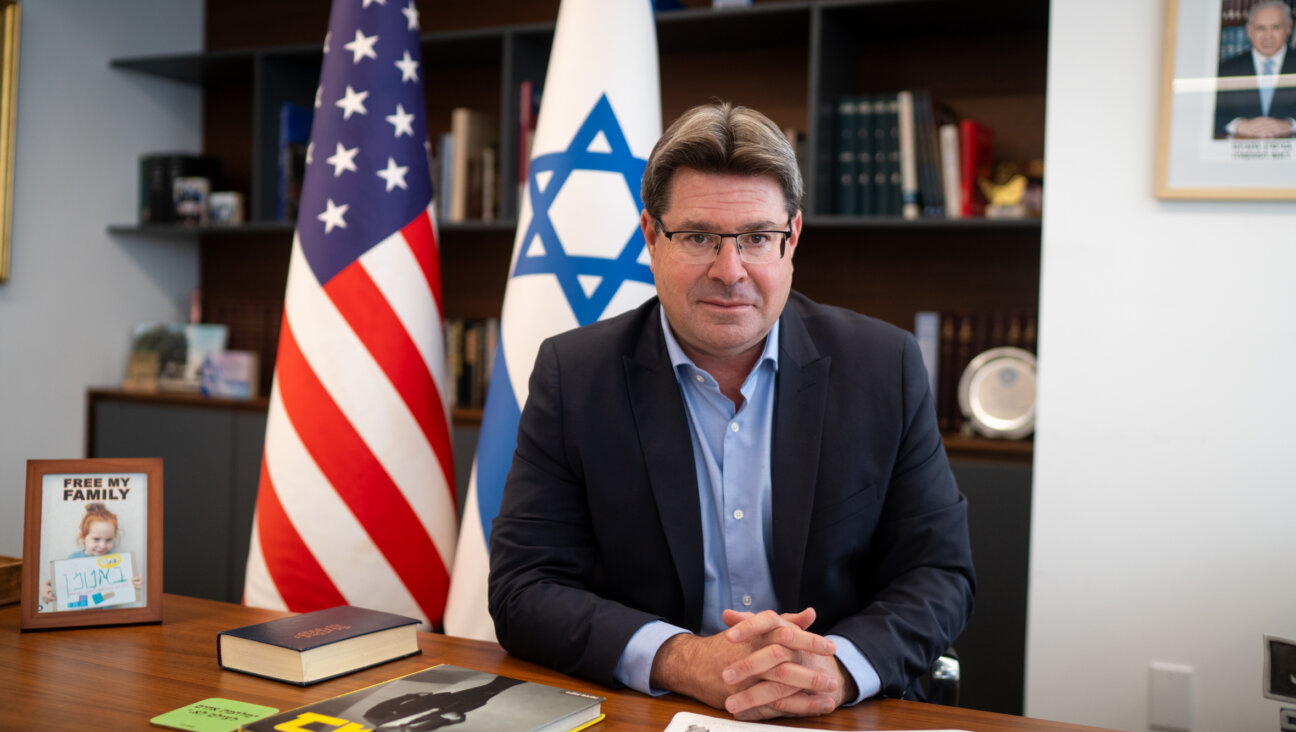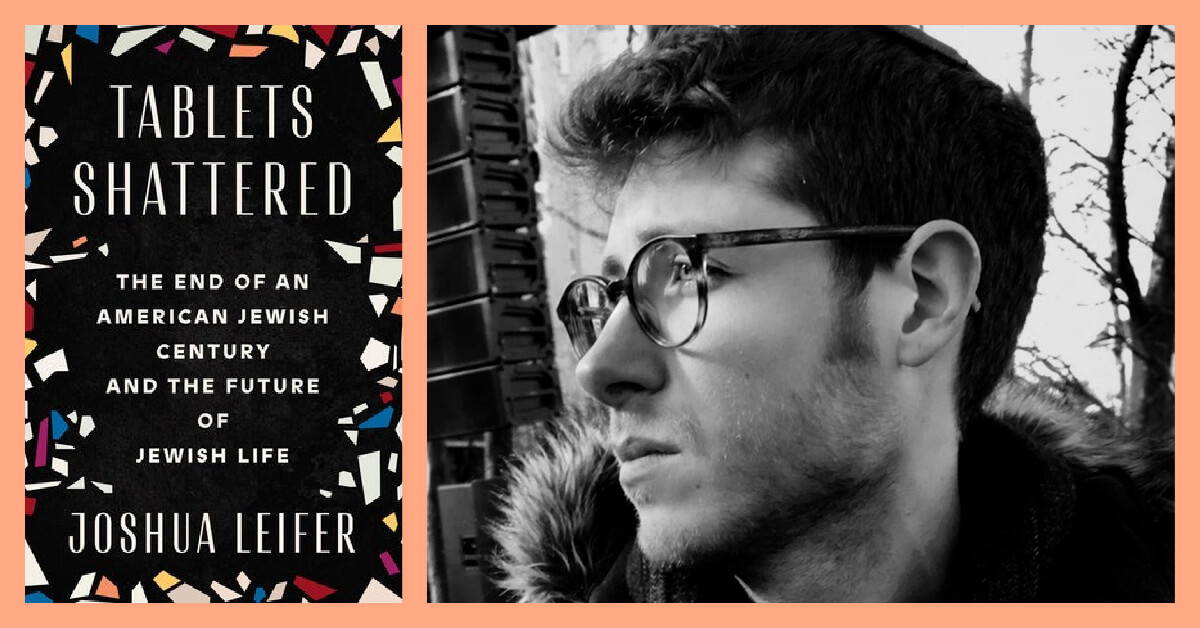How universities have changed their policies on protest because of the war in Gaza
Students returning to campuses this week will find bans on tents, rules regarding masks and training around antisemitism

As part of its heightened security measures, Columbia University is now only allowing affiliates with a Columbia ID and their approved guests to be allowed onto campus. Photo by Spencer Platt/Getty Images
Columbia University, the trigger point for last spring’s wave of encampments protesting Israel’s war in Gaza at schools across the country, is restricting access to its Upper Manhattan campus this week to people with university identification and their authorized guests, and only opening five entry points. Meanwhile at the University of Michigan and The New School in lower Manhattan, the fall semester began Monday with student governments suspending funding for all campus clubs until the institutions divest from companies profiting off the war. (In Ann Arbor, administrators said they’d found another way to fund the clubs.)
After an intense academic year marked by pro-Palestinian protests, complaints about antisemitism on campus and heated debates over the lines between free speech and student safety, colleges and universities are returning this fall with a panoply of new policies. Some schools have banned encampments entirely, while others are restricting the time, duration, location and amplification of protests. Activists who wear masks may be required to produce identification.
Other campuses have new codes of conduct relating to the use of the word “Zionist” or expanded punishments for those who violate existing standards. Columbia, Harvard, UPenn and the University of California, Berkeley, are among those either adding or newly emphasizing training about antisemitism to their student orientation programs. And the City University of New York is “redoubling efforts to promote civil discourse and dialogue, tolerance and respect across its 25 campuses,” according to a news release Wednesday, including a unity campaign headlined “Hate Divides Us, Diversity Unites Us.”
Here’s a list of policy changes or other actions at some campuses. If you know of others, please email [email protected], subject line: Campus protests.
Banning or restricting encampments and other protests
- Indiana University, as part of its “expressive activity” policy, now bars protests within 25 feet of university buildings, or any demonstrations that block “any building, facility, driveway, parking lot or parking ramp”
- University of South Florida is banning all protests after 5 p.m. and during the final two weeks of each semester. It is also requiring approval for all on-campus tents and canopies, and saying they cannot be left out overnight without prior authorization.
- Vanderbilt University is banning all demonstrations that “require individuals to sleep or gather overnight.” On-campus displays are only allowed during daylight hours and for up to three consecutive days.
- University of California has prohibited encampments on its 10 campuses, and also said protesters cannot wear masks or disguises that conceal their identity
- California State University has adopted the same rules for its 23 campuses.
- University of Pennsylvania: No encampments or overnight demonstrations
- University of Virginia is banning tents on campus unless approved, and prohibiting all structures, including tents, from being left up overnight.
- James Madison University: No tents or other items used to create a shelter unless approved.
- University of Connecticut has not only banned encampments but also tools used to amplify sound at outdoor gatherings.
- Syracuse University now requires authorization for on-campus “use or assembly of tents or other temporary shelter structures.”
- Harvard University has clarified its rules to make clear protests are not allowed in classrooms, libraries, residence halls, dining halls or “places that would interfere with the normal activities of the university.” At lecture events, audience members are not allowed to protest in a way that interferes with the speaker’s right to be heard.
- Case Western Reserve University is requiring requests for demonstrations to be submitted in advance and approved by a committee, a process the student newspaper criticized in an editorial.
- Northwestern University has enacted a new demonstration policy that bans overnight protests.
Suspending student organizations on campus …
- Rutgers University has suspended its chapter of Students for Justice in Palestine until July 2025
- George Washington University has also suspended its SJP chapters, along with its chapter of Jewish Voices for Peace and six other pro-Palestinian groups
… or online
- Columbia University’s chapter of SJP was permanently banned on Instagram. The group received a notice from Meta stating their account “doesn’t follow our Community Guidelines.”
- New York University’s People’s Solidarity Coalition, previously known as the Palestine Solidarity Committee, was suspended on Instagram
Conduct codes
- New York University has new community standards that say using the terms Zionist or Zionism in a derogatory way may violate its non-discrimination and anti-harassment policies.
- Barnard College has new community conduct expectations that say some uses of “Zionist” may be considered discrimination. The code also prohibits accusing students of supporting genocide because they are (or are perceived to be) Jewish and prohibits calling someone a “terrorist” because they are showing support for Palestinians. Barnard is a college of Columbia University, which has its own code of conduct.
- University of Virginia and James Madison University both now require anyone wearing a face covering to show identification if asked.
- Cornell University, following vandalism on the first day of classes, outlined new and detailed consequences such as temporary academic suspension for violating its codes
Do you know of other policy changes? Please share documentation via email: [email protected], subject line: Campus protests.
Editor’s note: This story was updated Sept. 5 to add the entries about Case Western Reserve University and Northwestern University.
A message from our Publisher & CEO Rachel Fishman Feddersen

I hope you appreciated this article. Before you go, I’d like to ask you to please support the Forward’s award-winning, nonprofit journalism so that we can be prepared for whatever news 2025 brings.
At a time when other newsrooms are closing or cutting back, the Forward has removed its paywall and invested additional resources to report on the ground from Israel and around the U.S. on the impact of the war, rising antisemitism and polarized discourse.
Readers like you make it all possible. Support our work by becoming a Forward Member and connect with our journalism and your community.
— Rachel Fishman Feddersen, Publisher and CEO




























